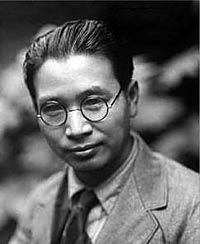And they heard the sound of the Lord God walking in the garden in the cool of the day, and the man and his wife hid themselves from the presence of the Lord God among the trees of the garden. But the Lord God called to the man and said to him, “Where are you?” And he said, “I heard the sound of you in the garden, and I was afraid, because I was naked, and I hid myself.” He said, “Who told you that you were naked? Have you eaten of the tree of which I commanded you not to eat?” The man said, “The woman whom you gave to be with me, she gave me fruit of the tree, and I ate.” Then the Lord God said to the woman, “What is this that you have done?” The woman said, “The serpent deceived me, and I ate.”
The Lord God said to the serpent, “Because you have done this, cursed are you above all livestock and above all beasts of the field; on your belly you shall go, and dust you shall eat all the days of your life. I will put enmity between you and the woman, and between your offspring and her offspring; he shall bruise your head, and you shall bruise his heel.”
The climax of the scripture reading was the prophetic promise by God that he would send a man to defeat the serpent through the seed of the woman--recognized by most as the first promise of the Messiah in the bible. That means, that within the context of the first sinful act committed by humanity, God had already pointed to the means by which He would save his creation; sending his own Son!
However, I was a little disappointed that the young woman reading the text did not continue through the passage--because one of the most profoundly significant passages to Christmas is contained just a little farther down the page in Genesis 3:20-21:
However, I was a little disappointed that the young woman reading the text did not continue through the passage--because one of the most profoundly significant passages to Christmas is contained just a little farther down the page in Genesis 3:20-21:
The man called his wife's name Eve, because she was the mother of all living. And the Lord God made for Adam and for his wife garments of skins and clothed them.
In the midst of man's disobedience and fall--we are able to see the nature of God as a merciful and gracious Father. His first act after chastising them was to cover over their nakedness, their shame and their guilt. He made the provision; he gave the first Christmas gift. In order to cover over their shame, it was needful that animals give their lives. This points to one of most significant themes of the bible--the cost for forgiveness is the shedding of blood. There is no atonement for sin without blood. However, as we know from the entire biblical narrative, the shedding of blood would never be a perfect or permanent substitute for sin.
This is why just a chapter later we see Cain killing Abel out of jealousy of the Lord's favor--because Abel had given a costly gift, sacrificing the first fruits of his flock, while Cain had given the first fruits of his grain. It is for this reason that Abraham and Isaac were provided with a ram to sacrifice, and the nation of Israel instituted a sacrificial system, where each year a lamb was sacrificed that would take the sins of the whole nation upon its head. But even the writers of the Old Testament understood that God was not pleased with sacrifices, that something more permanent was needed to forgive and cover over sin permanently.
That is why, two millennium ago, God sent his own son, born as a baby to be that sacrifice. As you reflect on the day, consider that Jesus was born in a barn alongside 'ceremonial clean' animals, some of which were no doubt bound to be sacrificed in the Temple. His birthplace in that barn was just as significant as his birthplace in Bethlehem. There was no room at the inn according to God's plan, because his birthplace would point us to his purpose. He was rightly identified by John the Baptist as the 'Lamb of God, that takes away the sins of the world.'
Much has been made of Jesus' penal substitutionary atonement--and rightfully so. His mission in coming was to take our sins upon himself on the cross, and by becoming sin he bore the wrath of God against our sin upon himself on that cross; all sin, past, present and future! However, understanding justification falls short of the totality of what Jesus did--he came to reconcile us to the Father, but in an incredible turn of events, he went one step farther, inviting us to become adopted members, sons and co-heirs in the family of God!
Jesus told a parable about a great wedding feast in Matthew 22 in which the guests that had originally been invited declined to come, as a response the king in the Parable commanded his servants to go out and invite anyone they could find to the celebration.
And those servants went out into the roads and gathered all whom they found, both bad and good. So the wedding hall was filled with guests.
“But when the king came in to look at the guests, he saw there a man who had no wedding garment. And he said to him, ‘Friend, how did you get in here without a wedding garment?’ And he was speechless. Then the king said to the attendants, ‘Bind him hand and foot and cast him into the outer darkness. In that place there will be weeping and gnashing of teeth.’ For many are called, but few are chosen.”
Regardless of your theology on whether the atonement was limited or unlimited, this passage points to a truth, that some will reject God's invitation outright, and others will attempt to blend in with the crowd and ultimately will be sifted out.
For the sake of this devotional, I want us to focus on the way that Jesus uses the imagery of clothing in the passage. The dividing line, the demarkation between those guests was what they were wearing. The first gifts given by God in the garden were animal skins to cover over the shame and sin of Adam and Eve. To all those that respond to the wedding invitation of the Lamb, new wedding cloths are given--these cloths are in fact, himself.
In Romans 13 the Apostle Paul uses a figure of speech which I had honestly not until recently put much thought into, but has become the center point of Christmas to me. "But put on the Lord Jesus Christ" or as some other translations put it "Clothe yourselves with the Lord Jesus Christ."
Jesus has become, in his incarnation, life, death and resurrection our wedding cloths--he was the lamb that was slain to make us permanent garments, spotless and clean, so that when wearing him, and his righteousness we can stand as Sons before the throne of the Father. Praise the Lord! Thank you Jesus! And Merry Christmas!




























